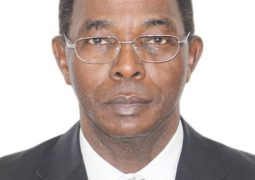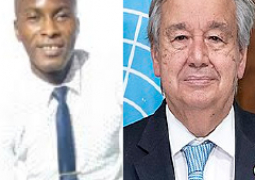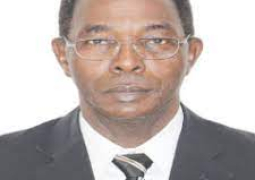With the death of the promulgation Bill on the Draft New Constitution in Parliament on Tuesday 22nd of September, the nation was shocked to witness a sad day for our democracy.
Gambians were eager for a New Constitution that will set the pace for a framework of governance in this era and which should last for years. The establishment of the CRC by the government, the extensive consultation process at home and abroad and the finalization of the Draft New Constitution document were accomplished on time. The final piece was presented to the President by the CRC. After nearly six months with the Presidency, and having gone through necessary gazetting, the office of the President released the Draft Constitution document to Parliament for further action. Interestingly, there was no official pronouncement on the position of the Presidency on the New Constitution known to the general public.
The tragic reality however is that National Assembly Members (NAMs) are not obliged to endorse any Bill of law presented to them. After several days of debates on the merits and principles of the Bill, a vote on its fate was sanctioned by the House Speaker in accordance with the rule. The verdict turned out to be a rejection of the Draft New 2020 Constitution. The Bill was dead with 31 voting yes and 23 voting no. The Bill failed to secure its 42 threshold to pass. The matter has now become a national headache and governance chaos. The question before us is: are we going back to the 1997 constitution? It is hoped that government and Parliament will in due course reconcile their differences on the Draft New Constitution and to accord Gambians a clean bill that is reflective of New Gambia. This is what Gambians deserve.
The fact is that there were many fundamental mistakes with the constitutional process. First, the CRC was laden with lawyers. The CRC should have included people with experience in governance, in religious affairs, in politics and from Civil Society. Because of too many lawyers, the tendency towards judiciary advocacy was very much reflected in the process. The draft was seen more as a reaction of our past and a curtail of executive powers which breeds a lame duck plight for the Presidency. There was no distinction between Civil Service appointments and political appointments that should be referred to Parliament for endorsement. A platform was not created by the CRC as to what next should the Draft Constitution be rejected by Parliament in the process. The Draft Constitution document was too elaborate and elitist for a reading culture in the country that is evidently poor. The President to whom the CRC first submitted their work on the new constitution, did not come out publicly to make his position known on it before assigning it to Parliament. In presenting the Bill to Parliament, the government position was not clearly stated by the Minister with the portfolio. In the view of many, the outcome in Parliament validates the views of both the executive and NO MPs. This by implication means the consultative process was not full proof unless it reflected the views that are pertinent to key stakeholders.
The Gambia is at critical crossroads once again. We cannot afford the politics of flip-flopping and the much talked about elements (sections) of contention in the CRC draft constitution to derail our march towards a governance architecture that fits New Gambia. We either swim together or sink together. Our democracy will become a laughing stock if we should go back to the 1997 constitution which was vehemently and overwhelmingly condemned by this transition leaders and those in favour of a new national order. Politicians must be warned that there is NO TERM LIMIT to the 1997 constitution. It also calls for simple majority to declare the winner in Presidential elections. Simple majority can go in any direction. It is like penalty kick in a football match. With 17 parties in the contest, anyone with even a lead of 3 votes becomes elected as President under simple majority. Government is urged to reengage the CRC in a broader formation, to call all key stakeholders and some development partners into negotiations about the constitutional impasse in order to find a common ground for a new constitution rather than leaving the country in such an unsafe legal environment.
By D.M. Badjie
Political Scientist/Consultant
Read Other Articles In Opinion





